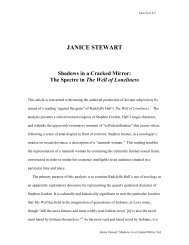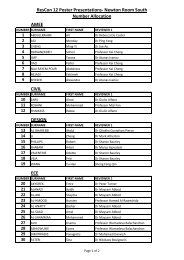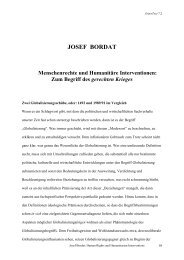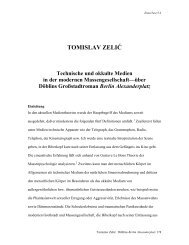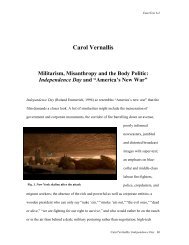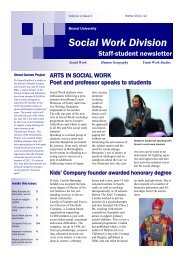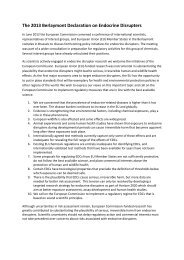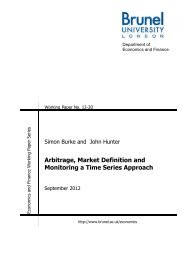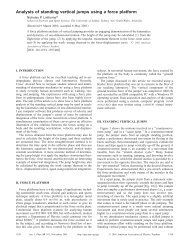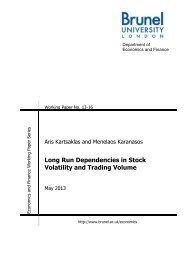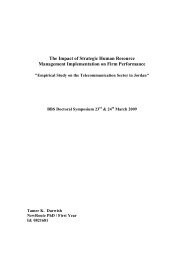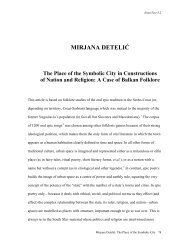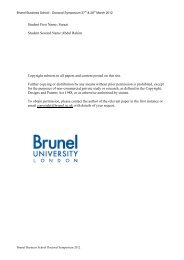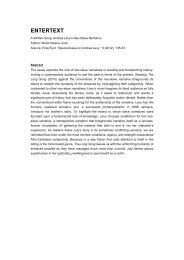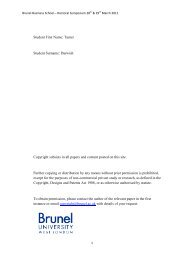Brunel's Olympic Hopefuls - Brunel University
Brunel's Olympic Hopefuls - Brunel University
Brunel's Olympic Hopefuls - Brunel University
Create successful ePaper yourself
Turn your PDF publications into a flip-book with our unique Google optimized e-Paper software.
Bill’s argument stems from a<br />
series of evidential discoveries<br />
that, in his opinion, are not<br />
consistent or synonymous with<br />
our culture’s popular beliefs. He<br />
elaborates on this by offering<br />
reasoning to his claim, stating that<br />
twelve of Shakespeare’s 36 plays<br />
are based in Italy. The person who<br />
wrote these plays would need to<br />
possess intricate knowledge of<br />
Italian geography; however there<br />
are no records to assume that<br />
Shakespeare ever ventured to<br />
Italy or had resources to learn the<br />
geography.<br />
Moreover, historians believe that<br />
Shakespeare had a vocabulary<br />
of about 15,000 words when the<br />
average person in today’s society<br />
has about 3,000-4,000. We know<br />
that the person or persons who<br />
wrote the plays was of great<br />
learning and education, yet there<br />
is no traceable evidence that<br />
Shakespeare showed the slightest<br />
persuasion to the pursuit of<br />
knowledge. Historians have never<br />
been able to discover records of<br />
him ever attending school or higher<br />
education. Shakespeare would<br />
also need to possess knowledge of<br />
aristocratic past-times, aristocratic<br />
circles and a strong knowledge of<br />
the law and legal vocabulary, none<br />
which seem to fit his uneducated<br />
middle-class profile. Additionally,<br />
Shakespeare’s Will did not mention<br />
any books, which at that time were<br />
very valuable and if we believe<br />
that the person who wrote the<br />
plays was of very high learning, this<br />
presents arguable inconsistency.<br />
Furthermore, the person or persons<br />
who wrote the plays was familiar<br />
with five languages. Bill’s scepticism<br />
around this is spawned by the lack<br />
of evidence indicating Shakespeare<br />
had access to the education,<br />
training or exposure to learn five<br />
languages. The pro-Shakespeare<br />
camp aggressively defends this<br />
conclusion by simply saying he<br />
was a literary genius. Our society<br />
often refers to Mozart as a genius;<br />
yet this claim is supported by clear<br />
evidence that his father was a<br />
composer and taught Mozart about<br />
music. Evidence of Shakespeare’s<br />
background is too inexplicably<br />
absent to draw us to this same<br />
conclusion, thus prompting pro-<br />
Shakespearean scholars to compose<br />
their own manufactured version<br />
of events. Bill explains that there<br />
are no records between the time<br />
of Shakespeare’s baptism until his<br />
marriage and says that 60 to 70 per<br />
cent of Shakespeare biographies<br />
are false because they devote<br />
chapters to his childhood, despite<br />
there being no way to actually<br />
know what happened in that time.<br />
Whether or not Shakespeare - the<br />
man or the pseudonym - was the<br />
true author there still remains<br />
something untouchable about<br />
Shakespeare’s legacy in certain<br />
circles. In spite of the demonstrable<br />
lack of information historians know<br />
about Shakespeare, his legacy has<br />
been consistently maintained by<br />
centuries of pro-Shakespearean<br />
activists advocating his immortal<br />
genius. The inconsistencies in<br />
his traceable history have been<br />
replaced by a legend whose<br />
literary brilliance unequivocally<br />
revolutionised the English<br />
language. Some may reason this<br />
divine gift to the literary world<br />
is a valid enough motive to<br />
preserve the myth. Bill attempts to<br />
understand this by suggesting that<br />
“Destabilising people’s belief in<br />
Shakespeare can be disconcerting…<br />
(Shakespeare) gives meaning to<br />
people’s lives and questioning it<br />
upsets them”.<br />
Regardless of which side of the<br />
fence you are on, there remains<br />
a theological resistance when<br />
challenging assumptions about<br />
Shakespeare. Bill’s research is not<br />
intended predispose you to his<br />
personal theories, it is designed to<br />
make people look at Shakespeare<br />
in a whole new context, absent<br />
of presuppositions but rather<br />
enriched with an objective analysis<br />
of evidence for people with a<br />
healthy academic curiosity. Bill’s<br />
theory is both empowering and<br />
enlightening and assures anyone<br />
who is interested that if they dig a<br />
little deeper they are bound to find<br />
things they didn’t know, that they<br />
should know.<br />
MAIN FEATURE :: LINK MAGAZINE<br />
19<br />
Reasons for<br />
Bill’s theory:<br />
• There is evidence of<br />
Shakespeare as a theatre<br />
broker who bought and sold<br />
plays. He wrote some and paid<br />
playwrights.<br />
• In 1592 there was a record of<br />
a fellow playwright saying:<br />
“Shakespeare is stealing our<br />
work and passing it off as his<br />
own.”<br />
• No manuscripts exist.<br />
• We know Shakespeare moved<br />
to London for a part of his life,<br />
yet no letters exist. There is no<br />
correspondence to his family<br />
when he lived there.<br />
• 18 of Shakespeare’s plays were<br />
published for the first time<br />
seven years after Shakespeare<br />
died.<br />
• Records exist of Shakespeare<br />
as a money lender, tax evader<br />
and business man, yet none to<br />
suggest he was a writer.<br />
• Records exist of Shakespeare<br />
hoarding grain during the<br />
famine and selling it at a<br />
higher price, suggesting he<br />
was a businessman.<br />
• His name was on some plays,<br />
but not on others.<br />
• First five editions of Romeo<br />
and Juliet the author was<br />
anonymous.



